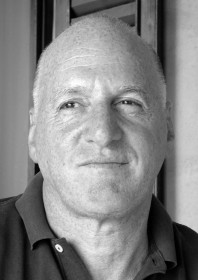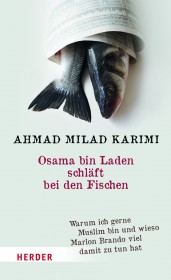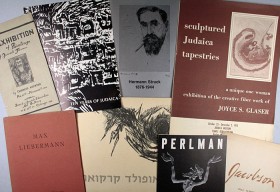
The author © David Ranan
For his book, “The shadows of the past are still long: Young Jews on their lives in Germany,” culture researcher, David Ranan, conducted interviews with Jews between 20-40 whose grandparents survived the Holocaust and then settled in Germany after the war. The London-based author will present his book at the Academy of the Jewish Museum Berlin on 7 July 2015, as part of the “New German Stories” series. In advance, we asked him three questions.
Julia Jürgens: Mr. Ranan, one question you asked your interviewees deals with the “packed luggage” the first and second generation seem to have at the ready, an expression of their inner conflict between being able to safely stay or having to again flee. Is there still this conflict within the third generation or how else would you describe its sense of belonging to Germany? → continue reading
“New German Stories,” an event series launched in January 2014 as part of the Academy program, continues this evening, 10 March 2015, when Ahmad Milad Karimi, Professor of Islamic Philosophy and Mysticism at the University of Münster, presents his new book Osama bin Laden is sleeping with fishes (Osama bin Laden schläft bei den Fischen) at the Academy of the Jewish Museum Berlin. We put three questions to our guest, prior to the event.

Ahmad Milad Karimi: Osama bin Laden is sleeping with fishes (Bookcover) © Herder Publishers
Julia Jürgens: Dear Mr. Karimi, in your autobiography you bring together Western popular culture and the history of Islamic intellectualism, the translation of the Koran and your PhD thesis on Hegel, Persian mysticism and a penchant for mafia films. If I may make a question of your book’s subtitle: What does Marlon Brando have to do with the pleasure you take in being Muslim?
Ahmad Milad Karimi: That is a secret of the book, a secret concealed first and foremost by the fact that there is always more to people than the pigeonhole we like to keep them in.
Six years ago you published your new translation of the Koran. What motivated you to take up such a challenge and add a new translation to those already in existence?
The Koran is more than simply a book—it is → continue reading

Gray literature held by the library, Gross Family Collection © Jewish Museum Berlin, Photo: Lea Weik
The library of the Jewish Museum Berlin is growing day by day. Since early 2014, this has been particularly noticeable in the Jewish visual and applied arts section, which currently stocks about 10,000 media objects (books, journals, non-book media, etc.). As part of the framework of a project funded by the DFG (German Research Foundation), which I have been working on for the past year, our team has had the opportunity to make essential acquisitions and to close existing gaps in this area. Further expansion is planned—and will take us another big step towards our goal of establishing a research library for Jewish art and cultural history.
Before the first Jewish visual and applied arts publications arrived at the library, there were many tasks to be performed: first and foremost, to settle the question, → continue reading


